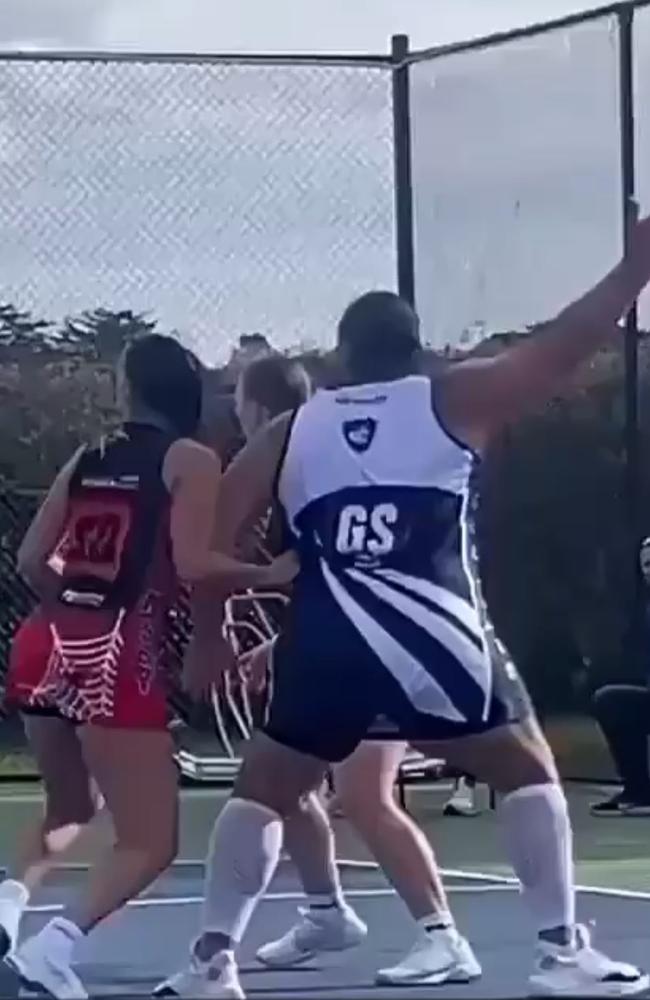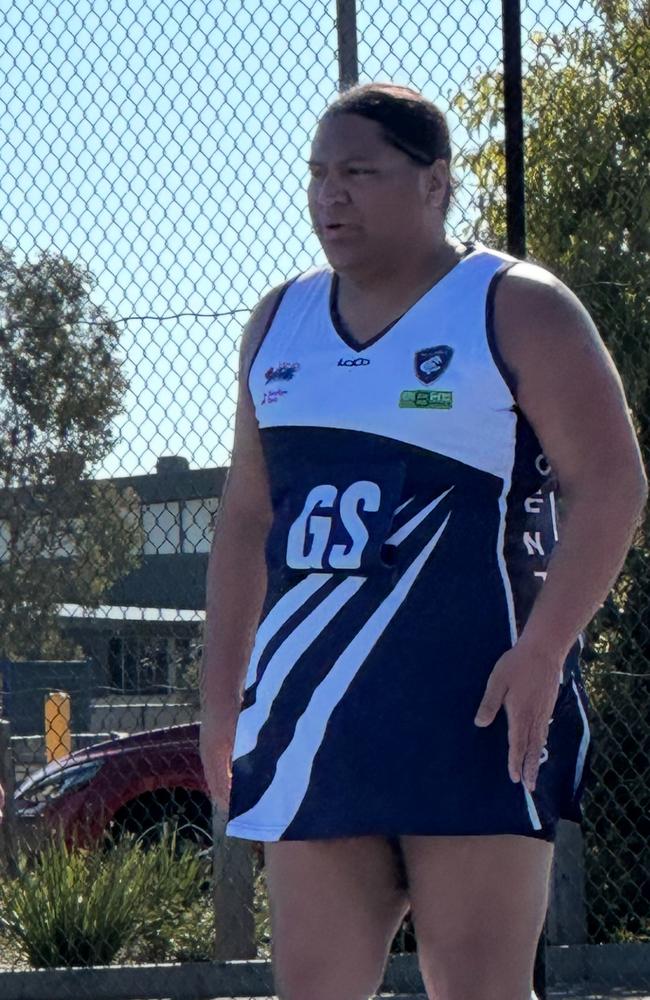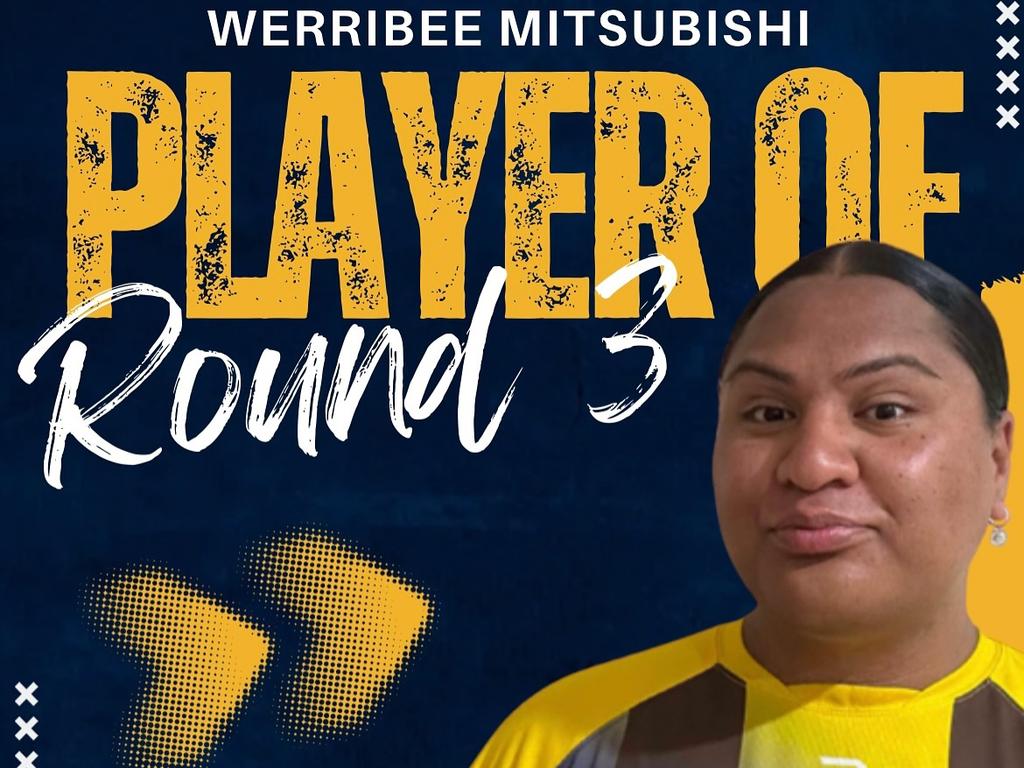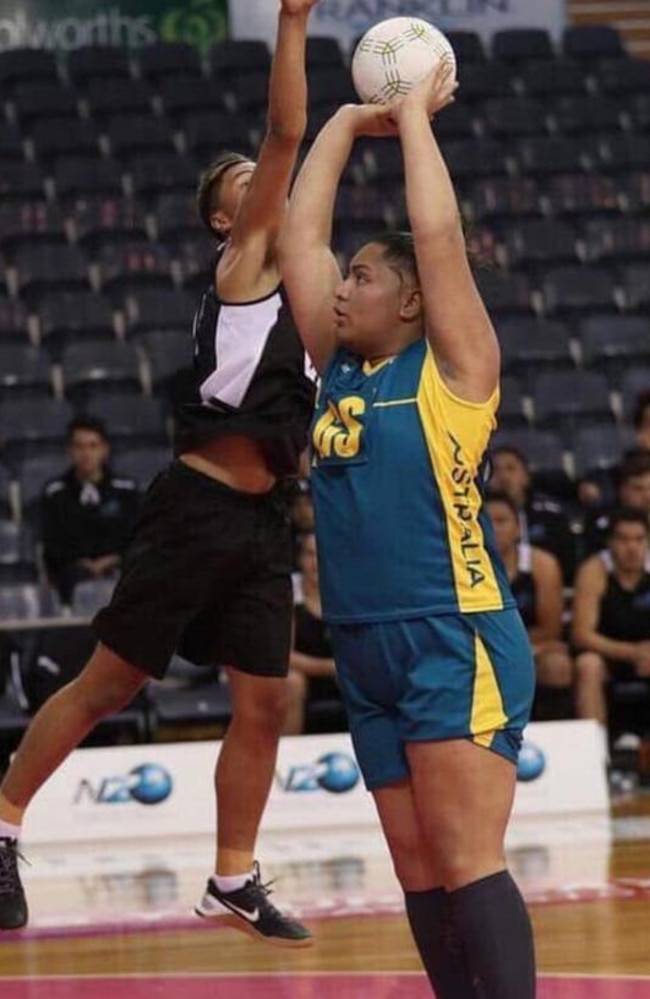Transgender netball player hits back after being banned from Victorian league
One of two transgender netball players banned from a Victorian competition has hit back at the decision, accusing a rival club of hypocrisy.
A transgender netball player who was banned from a Victorian competition has hit back at the decision, accusing a rival club of hypocrisy and fuelling a climate of discrimination.
Manawa Aranui, who transitioned after previously competing in men’s netball, was told she could no longer take the court for Melton Central Football and Netball Club in the Riddell District Netball League (RDNL).
The ruling followed a threat from neighbouring club Melton South, which said it would forfeit matches if Aranui or her fellow transgender teammate were allowed to play.
The club cited concerns over player safety.
On Wednesday, the RDNL confirmed the ban under Section 42 of the Sex Discrimination Act, which permits sporting bodies to restrict participation where strength, stamina, or physique is considered a material factor.
The league’s statement triggered an impassioned public response from Aranui, who posted to Facebook criticising both the ruling and the motivations behind it.
“I’ve sat quietly long enough while this narrative brewed and I’ve been dragged — publicly and without consent — into a conversation where both my character and identity have been attacked,” she wrote.
“This won’t be a long novel — because frankly, these bigots don’t deserve my time or energy ... Melton South Football Netball Club and your Netball Coordinator/players: you’re entitled to your opinions, but let’s clear some things up.
“Your head coach tried to recruit me to play for your club. Yes — YOUR HEAD COACH TRIED TO RECRUIT ME.”


Aranui shared what she claimed was a screenshot of text messages from a Melton South official, appearing to ask whether she’d be open to playing A-grade next season “depending on the rules.”
Now banned, she says her gender identity only became an issue when she wasn’t on their team.
“You’ve played six quarters against me — AND we played all season last year alongside each other for Glen Orden — suddenly NOW I’m ‘dangerous’?” she wrote.
“Apparently now, I run full-speed into players and knock them over? We have two umpires on the court to keep the game safe. If I had done what you claim, wouldn’t I have been warned, penalised, or reprimanded?”
She insists she has not received a single caution in any competition.

“You’re entitled to believe it’s ‘unfair’ for cis women to compete against transgender women. That’s your opinion. But the lies? They need to stop.
“You’re not out here protecting women’s sport. You’re being malicious, using false narratives to mask your bigotry and personal agendas behind the guise of ‘safeguarding women’s spaces.’”
She claims the online abuse had been damaging.
“You’ve spread stories, targeted me, and enabled me to become the sole focus of online abuse and sideline harassment … I hope you’re proud of that. And I hope no child in your families ever has to endure what you’ve subjected me to,” she said.
The RDNL’s decision followed the circulation of video footage showing Aranui colliding with a Romsey player.

Netball Victoria has confirmed it is investigating, saying it engaged an independent expert to assess the concerns raised by clubs and players.
In 2018, Netball Victoria amended its bylaws to allow transgender and non-binary players to compete in female competitions based on self-identified gender.
The move aligned with national guidelines developed with organisations such as Proud 2 Play and the Australian Sports Commission (ASC).
Under the Sex Discrimination Act, sports may restrict participation if safety or competitive fairness concerns are objectively proven. But outside those exemptions, gender identity cannot be used to exclude athletes.
The ASC guidelines state: “It is important that sporting bodies … reflect the diversity in the communities they are a part of, and that together, we ensure every person is treated with respect and dignity and protected from discrimination.”



